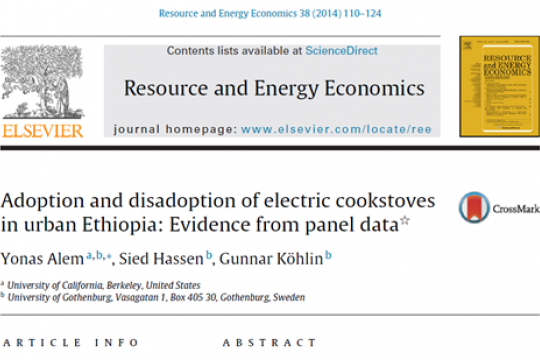Previous studies on improved cook stove adoption in developing countries use cross-sectional data, which make it difficult to control for unobserved heterogeneity and investigate what happens to adoption over time. We use robust non-linear panel data and hazard models on three rounds of panel data from urban Ethiopia to investigate the determinants of adoption and disadoption of electric cook stoves over time.
We find that the prices of electricity and firewood and access to credit are major determinants of adoption and transition. Our findings have important implications for policies aiming at promotion of energy transition and reduction of the pressure on forest resources in developing countries.
EfD Authors
Files and links
Country
Sustainable Development Goals



